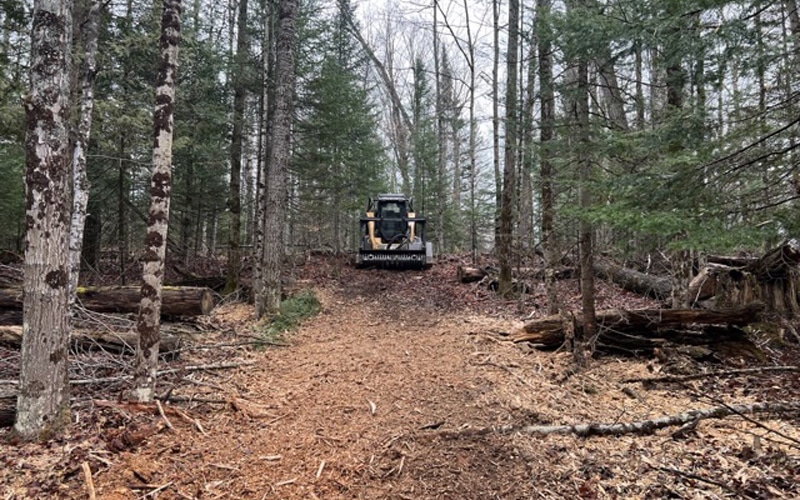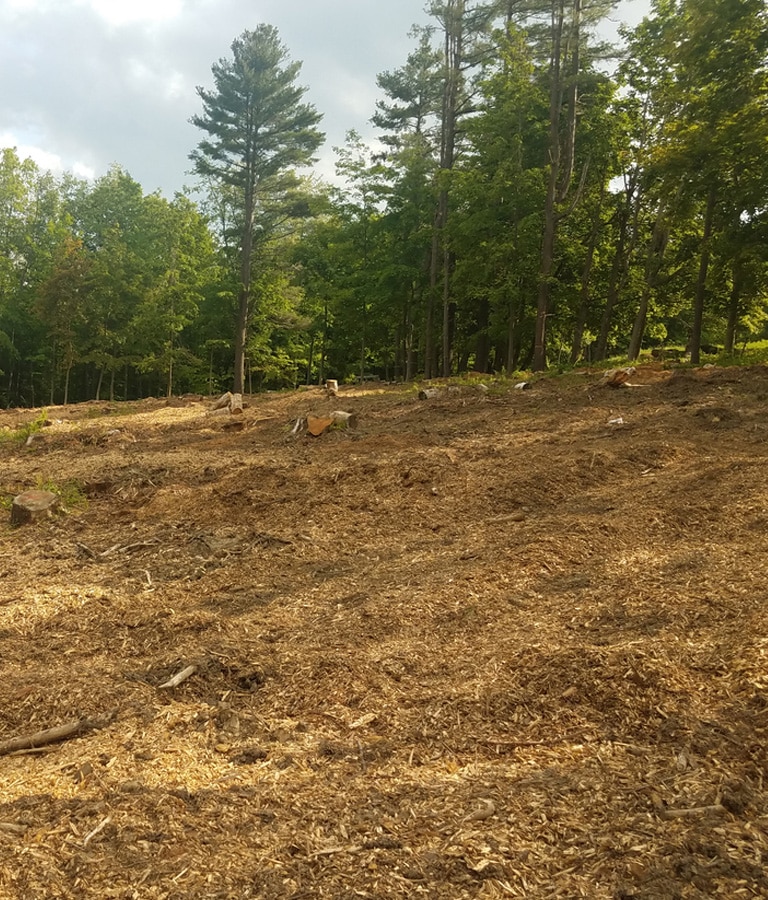Forestry mulching is a modern, single-step method for clearing land. It uses a specialized machine to cut, grind, and spread vegetation like trees, brush, and stumps directly where they stand. This process transforms unwanted overgrowth into a nutrient-rich layer of mulch on-site.
Unlike traditional land clearing, which often requires multiple machines like bulldozers and excavators for cutting, piling, and hauling, forestry mulching accomplishes the entire job with one piece of equipment. This eliminates the need for disruptive practices like burning or costly debris haul-offs, making it a more efficient and environmentally friendly alternative.
The Motor City Hot Shots Process: From Consultation to Completion
Choosing forestry mulching offers a wide range of advantages for property owners across the Great Lakes State.We believe in a transparent, customer-focused process to ensure your complete satisfaction. Our approach is designed to be clear, simple, and efficient from start to finish.

Frequently Asked Questions from Michigan Land Owners
The cost of forestry mulching is not one-size-fits-all and depends on several factors specific to your property. These include the terrain (hilly, rocky, or wet), the density and type of vegetation, the accessibility of the site, and the desired final appearance of the mulch. To provide an accurate price, we offer a free on-site assessment.
Our equipment can typically handle trees up to 8-10 inches in diameter with ease. The process is most efficient on smaller trees and dense brush, which are quickly turned into mulch. For larger trees, we can provide a separate quote for removal.
Forestry mulching will cut stumps flush with the ground, leaving a smooth surface. However, it does not grind stumps below the soil level. If you require sub-grade stump removal, that is a separate service we can discuss.
For most projects involving the clearing of brush and small trees, a permit is not required. However, regulations can vary depending on your local township, the size of the project, and whether the property is near wetlands. We can help you determine if any permits are necessary for your job.
The natural mulch layer will slowly decompose over time, typically within 12 to 24 months, depending on local conditions and the type of wood. During this time, it will continuously enrich the soil.


